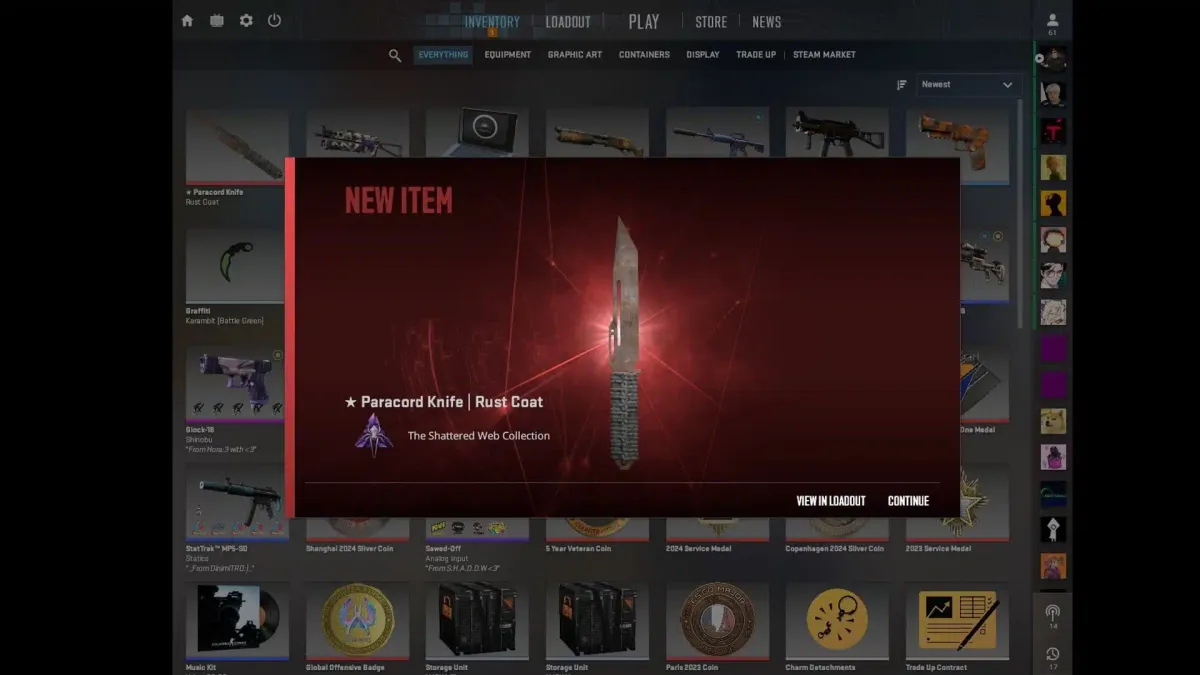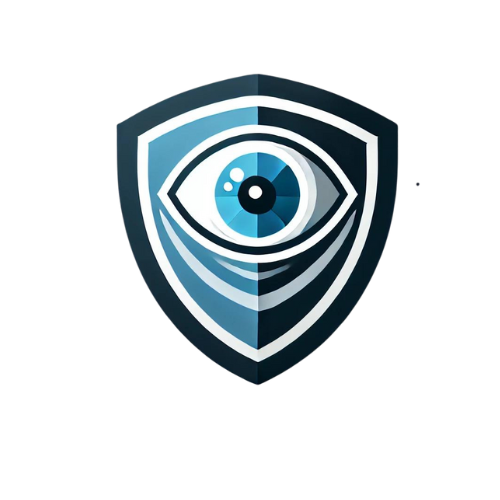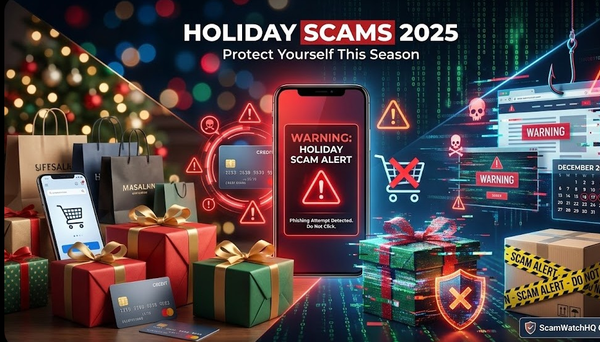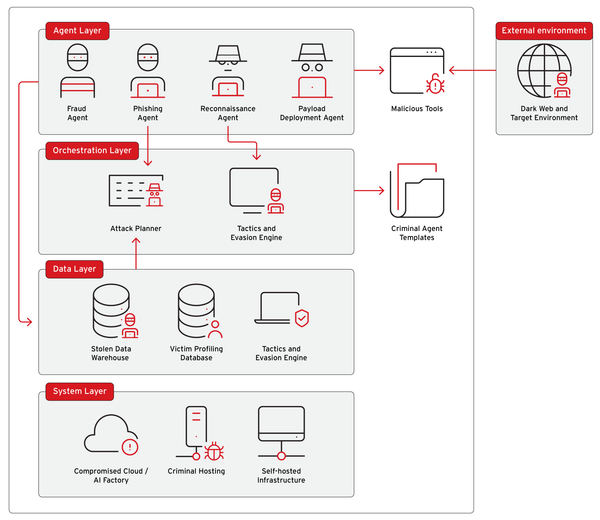FBI's Massive NBA Betting Bust Exposes the Dark Underbelly of Sports Gambling's "Wild West"

Operation Nothing But Net: How Chauncey Billups, Terry Rozier, and 34 Others Got Caught in a Mafia-Backed Sports Betting Ring
The Biggest Sports Corruption Scandal Since the Black Sox
The FBI dropped a bombshell on October 23, 2025, unveiling what authorities are calling one of the most brazen sports corruption schemes in modern history. 34 arrests across 11 states. Tens of millions of dollars in fraudulent bets. Four Mafia families. NBA insiders. And a web of deceit that exposes everything wrong with America's rush to legalize sports gambling.

Portland Trail Blazers head coach Chauncey Billups and Miami Heat guard Terry Rozier were arrested as part of investigations into illegal sports betting schemes and Mafia-backed rigged poker games, with FBI Director Kash Patel stating the fraud involved staggering amounts of money.
This isn't just another gambling scandal. It's a peek behind the curtain of an entire ecosystem designed to exploit, manipulate, and profit from the gray areas of legalized sports betting—and it connects directly to the unregulated Wild West of online casinos, sweepstakes sites, and offshore operators that have exploded since states started legalizing sports betting post-2018.
The Players: Who Got Caught and How They Did It
The Core Scheme: Insider Trading for the NBA
Between December 2022 and March 2024, defendants obtained and misused non-public information about upcoming NBA games to place fraudulent sports wagers, including pre-release medical information and players' intentions to alter their game performance.
The Six Charged in the NBA Betting Conspiracy:
- Terry Rozier (Miami Heat guard, formerly Charlotte Hornets)
- Damon Jones (former NBA player, unofficial Lakers assistant coach)
- Eric Earnest ("Spook")
- Marves Fairley ("Vez," "Vezino Locks")
- Shane Hennen ("Sugar")
- Deniro Laster ("Niro," "Payso")
How the Scam Worked: The Jontay Porter Blueprint
Former Toronto Raptors center Jontay Porter, who was banned from the NBA in spring 2024, admitted in court to manipulating his performance in two games during the 2023-24 season. Porter's case became the template:
January 26, 2024 Game: Porter informed co-conspirators he would prematurely exit games due to purported injuries, allowing them to place bets on his underperformance. He played just 4 minutes, citing an "eye injury" that video footage showed no evidence of.
March 20, 2024 Game: Mahmud Mollah of Lansdale, Pennsylvania, placed an $80,000 parlay bet on Porter's underperformance, winning $1.12 million when Porter left after just three minutes. Porter played 20 minutes in his previous game—one of his best of the season—before claiming "food poisoning."
Federal prosecutors revealed that Porter had amassed significant gambling debts and was threatened into participating in the scheme to clear those debts.
The Terry Rozier Connection: $200K in Fraudulent Bets
In March 2023, while playing for the Charlotte Hornets, Rozier allegedly informed co-conspirator Deniro Laster that he planned to leave a game early with a supposed injury, allowing over $200,000 to be wagered on his under statistics, generating tens of thousands in profits.
The money? Delivered to Rozier at home.
Damon Jones: Selling Inside Information
Former NBA player Damon Jones allegedly shared and sold insider information on multiple occasions, including lineup decisions and medical information about Lakers players before games in February 2023 and January 2024.
In one instance, Jones alerted a co-conspirator before a February 2023 game that a key Lakers player would sit out, texting "Get a big bet on Milwaukee tonight before the information is out!" The Lakers lost.
When the scheme failed: In January 2024, Jones sold injury information for $2,500 to a bettor who placed a $100,000 wager against the Lakers, but the player performed normally and the Lakers won, with the bettor demanding a refund that Jones refused.
The Mafia Connection: Rigged Poker Games
The second indictment revealed something even more sinister. Billups and Jones were accused of using their celebrity to lure people into poker games rigged by the Mafia, employing sophisticated cheating technologies including shuffling machines that could read cards, hidden cameras in poker chip trays, special contact lenses and glasses for marked cards, and X-ray tables.
This is straight out of a movie. Except it's real.
The Bigger Picture: How Legalized Sports Betting Created This Monster
Here's where this connects to everything wrong with America's gambling gold rush.
The Post-PASPA Explosion
In 2018, the Supreme Court struck down PASPA (Professional and Amateur Sports Protection Act), allowing states to legalize sports betting. Since then:
- Nearly 40 states have legalized some form of sports betting
- Only 7 states have legal online casinos
- The gap created a perfect storm
The NBA's pioneering efforts to embed itself in the legalized sports gambling industry have directly contributed to this crisis, with the league hoping embedded safeguards would detect scandals while simultaneously creating ideal conditions for acting on base instincts.
The Surveillance State That Caught Them
Here's the irony: DraftKings notified the International Betting Integrity Association of suspicious wagers related to Porter, who then notified the FBI, with DraftKings also reporting the suspicious coincidence to the NBA.
Legalized betting platforms did catch the fraud. But only after millions had already been stolen.
The Gray Area Exploitation: Sweepstakes Casinos and Offshore Operators
This NBA scandal is just one tentacle of a much larger monster. Let's follow the money through the entire ecosystem that Coffeezilla and other investigators have been exposing.
What Are Sweepstakes Casinos?
Sweepstakes casinos bypass gambling laws in almost every state by using virtual "Sweeps Coins" instead of real money, which can be redeemed for cash prizes, allowing them to operate legally in 48 out of 50 US states.
They exploit a simple legal loophole: if you're not technically "betting" real money, you're not gambling under most state laws.
How they work:
- You don't "deposit"—you "purchase" Gold Coins
- You don't "bet"—you "play" with Sweeps Coins
- You don't "withdraw"—you "redeem" prizes
- Language matters. It's how they avoid regulation.
The Scale of This "Legal" Gray Area
Revenue from sweepstakes casinos rose from $3.1 billion in 2022 to an anticipated $6.9 billion in 2025, with a compound annual growth rate of 85% between 2019 and 2023.
That's nearly $7 billion operating in a regulatory gray area, paying virtually zero gambling taxes.
The math on lost state revenue: If sweepstakes casinos were regulated with a 15% tax rate similar to New Jersey's online gaming rate, states would have collected $300 million in 2023 alone.
Who's Running Away With Your Money?
Major sweepstakes operators:
- Chumba Casino (launched by VGW in 2012, pioneered the dual-currency model)
- Stake.us
- LuckyLand Slots
- Fortune Coins
- WOW Vegas
- McLuck Casino
The American Gaming Association estimated that unregulated operators took $109 billion in bets in 2024, representing a loss of $17.3 billion in revenue for the regulated gambling industry.
Offshore Operators: The Truly Illegal Operations
While sweepstakes casinos operate in a legal gray area, offshore casinos are outright illegal in the US—yet they operate with impunity.
Bovada: The Poster Child of Illegal Offshore Gambling
Bovada holds no online gaming licenses in the United States but continues to allow people in the majority of US states access to its internet casino, sportsbook, and poker room, despite cease-and-desist orders from multiple states.
States that have ordered Bovada to cease operations:
- Colorado
- Connecticut
- Delaware
- Louisiana
- Maryland
- Michigan
- Nevada
- New Jersey
- New York
- Ohio
- Washington, DC
- West Virginia
Bovada claims it operates legally through a license from the Anjouan Gaming Board—an archipelagic country off the coast of Africa. US gaming regulators, industry leaders, and federal lawmakers say the Anjouan licenses carry no legal weight in the United States.
Why Offshore Sites Are Attractive (And Dangerous)
The appeal:
- Tax-free winnings for users
- No state or federal taxes on operators
- No regulatory oversight
- No player protections
The danger:
- No recourse if you're scammed
- Your money can disappear overnight
- No responsible gaming safeguards
- Your data is completely unprotected
State Crackdowns: Too Little, Too Late?
Michigan Leads the Charge
Michigan has been the most aggressive state in combating both sweepstakes and offshore operators, issuing cease-and-desist letters to:
- PredictionStrike Inc.
- Stake.us (Sweepstakes Limited, Cyprus)
- VGW LuckyLand, Inc.
Other States Following
Montana: Governor Greg Gianforte signed legislation on May 12, 2025, banning any online casino that allows consumers to place bets using any form of currency and makes payouts of any form of currency.
Connecticut: Governor Ned Lamont signed a law on June 24, 2025, making it unlawful to promote sweepstakes that facilitate participation in any real or simulated online casino game or sports wagering.
Louisiana: The Gaming Control Board sent over 40 cease-and-desist letters to sweepstakes casinos, resulting in almost all exiting the state. However, Governor Jeff Landry vetoed legislation that would have banned online sweepstakes casinos, saying the state gaming control board already had jurisdiction.
Minnesota: The state's Alcohol and Gaming Enforcement division contacted over 20 operators on June 1, 2025, with "mixed results," instructing them to cease serving state residents or modify their practices.
The Problem: States Have No Teeth
Most cease-and-desist orders are ignored. Offshore operators simply don't care about US state regulators. And sweepstakes casinos? They hire lawyers who argue—often successfully—that their dual-currency model doesn't constitute gambling.
The Coffeezilla Connection: CS:GO Skins and the Gambling Pipeline
This brings us to investigative journalist Coffeezilla (Stephen Findeisen), who's been exposing the casino scam ecosystem for years. His recent deep dive into Counter-Strike gambling reveals the same exploitation patterns we see in sports betting.
The CS:GO Casino Industry
In 2024, the CS:GO casino industry, encompassing skin gambling and trading, is valued between $10 billion and $15 billion annually, with the skin trading market alone estimated at over $1 billion.
What are CS:GO casinos? Counter-Strike introduced cosmetic "skins" in 2013 that quickly gained value. Gambling sites emerged where users could bet these skins in casino-style games—completely unregulated.
In 2015, $2.3 billion worth of skins were used for betting, reaching $5 billion by 2016, with estimates it could exceed $23 billion by 2020.
For a technical deep-dive into the mathematics behind CS2's gambling mechanics, including RNG algorithms, case opening odds, and how Valve's recent update wiped $2 billion from the market overnight, read our comprehensive analysis: The $2 Billion CS2 Knife "Rug Pull"
The Gateway to Broader Gambling
Studies show that skin gambling serves as a gateway to broader gambling behaviors, with strong correlations between skin gambling and problem gambling among adolescents.
The demographic: Esports bettors are predominantly younger males who actively play video games and engage socially through gaming, with the connection between esports and skin gambling creating a feedback loop where fans are encouraged to bet on matches.
Coffeezilla's Exposé: Bribed by Casinos
In his December 2024 video series, Coffeezilla revealed:
CSGOEmpire owner "Monarch" offered Coffeezilla $20,000 to expose rival casino CSGORoll, and even paid protesters to raid the PGL Major tournament in Copenhagen to protest against CSGORoll.
Monarch admitted to attacking CSGORoll and influencers who worked with them, seeing himself as a hero delivering justice, while simultaneously running an equally illicit website and employing Mafia tactics including distributing 30,000 flyers in influencers' cities featuring their pictures, houses, and cars.
Valve's Complicity
Coffeezilla accused Valve of being "the biggest casino of them all," exposing the company's seeming lack of oversight when it comes to Counter-Strike gambling and suggesting Valve is aware but chooses not to take serious action because skin gambling encourages loot box sales.
Valve hasn't sent cease-and-desist orders to gambling sites in eight years.
The Yotta Scandal: From Savings App to Casino
Coffeezilla also exposed how Yotta, a savings app promoted by major YouTubers, transformed into a casino:
Yotta began as a savings app with a "no-lose lottery" concept but pivoted to sweepstakes gambling, leaving customers unable to access their funds for weeks while the CEO claimed sweepstakes "is not gambling".
Users still can't get their money out. Sound familiar?
The Common Thread: Regulatory Arbitrage and Exploitation
All of these scams—the NBA insider betting ring, sweepstakes casinos, offshore operators, CS:GO skin gambling—share the same DNA:
1. Exploiting Legal Gray Areas
Whether it's claiming "sweeps coins aren't gambling," operating from Curaçao or Cyprus, or using virtual skins instead of currency, these operations find loopholes and exploit them until regulators catch up.
2. Targeting Young, Vulnerable Populations
CS:GO gambling targets predominantly younger males, with some starting to bet with skins as young as thirteen, creating gateway behaviors to problem gambling.
Sports betting apps plaster ads during games. Celebrity athletes like Terry Rozier get involved. It normalizes gambling for kids who watch these sports.
3. The Illusion of Legitimacy
Sweepstakes casinos claim they're "social gaming." Offshore operators claim they're licensed (just not in the US). Athletes-turned-insiders claim they're just "sharing information with friends."
All scams. Different packaging.
4. Massive Profits, Zero Accountability
Sweepstakes casinos gained millions of sign-ups and generated billions in revenue while being legal in 48 states with minimal regulation.
The NBA betting scheme involved hundreds of thousands of dollars in illegal bets placed through online sportsbooks and casinos using insider information.
The operators get rich. When things blow up, they disappear to foreign jurisdictions or behind corporate structures. Users are left holding the bag.
What This Means For You: Protection Strategies
If You're Betting on Sports:
✓ Only use regulated, licensed sportsbooks in your state
- DraftKings, FanDuel, BetMGM, Caesars (in legal states)
- These platforms have regulatory oversight and caught the Porter fraud
✗ Avoid offshore sites like Bovada, BetOnline, MyBookie
- No regulatory protection
- Can disappear with your money
- No recourse if scammed
If You're Considering "Sweepstakes Casinos":
Understand what you're getting into: Sweepstakes casinos blur legal lines by offering sweeps coins which can be used in games and redeemed for real value, placing them within the definition of gambling that's regulated in most states.
Red flags to watch for:
- Sites that use terms like "betting," "deposits," or "winning cash" instead of compliant sweepstakes language
- Companies not registered in the US
- Lack of KYC (Know Your Customer) verification
- No connection to responsible gaming resources
Recognize the Warning Signs of Problem Gambling:
The NBA scandal reveals how gambling debts spiral. Porter amassed significant gambling debts that led to him being threatened into participating in the fraud scheme.
If you or someone you know:
- Chases losses
- Gambles with money needed for bills
- Lies about gambling activity
- Feels unable to stop
Get help: National Problem Gambling Helpline: 1-800-522-4700
The Bigger Question: Should Sports Betting Have Been Legalized At All?
Critics allege that legalized sports betting creates inevitable outcomes like this scandal, with the NBA's approach preferring legalized gambling to illegal gambling for easier detection being an after-the-fact solution that means malfeasance has already occurred.
The NBA made sports betting partnerships core to their business model. They embedded advertising into broadcasts. They created "official betting partners." They normalized gambling to extract revenue from fans.
And now? The league faces what looks like a watershed moment directly attributable to its efforts to embed itself in the legalized sports gambling industry, with a crisis mode that may have reached the point of no return.
The Data Is Damning:
Since legalization:
- $109 billion taken by unregulated operators (2024)
- $17.3 billion lost from the regulated industry
- Zero effective federal oversight
- Patchwork state regulations easily bypassed
States thought they'd get tax revenue. Instead, they got:
- Sweepstakes sites paying zero taxes
- Offshore operators ignoring cease-and-desist letters
- Insiders rigging games
- Mafia-backed poker scams
What Needs To Happen: Policy Recommendations
1. Federal Standards for Sports Betting
The current patchwork of state laws is unenforceable. We need:
- Uniform definitions of gambling
- Federal oversight of interstate betting
- Actual penalties for offshore operators
- Mandatory KYC and geolocation verification
2. Close the Sweepstakes Casino Loophole
The American Gaming Association called for states to enact legislation preventing unlicensed operators from exploiting loopholes in sweepstakes regulations to offer online real money gambling.
Either ban them or regulate them. This gray area serves no one except the operators.
3. Hold Leagues Accountable
The NBA, NFL, and other leagues profit from gambling partnerships. They should:
- Fund gambling addiction treatment
- Implement stronger integrity monitoring
- Ban athletes and staff from any betting-related activities
- Create independent oversight bodies
4. Crack Down on Offshore Operators
The DOJ needs to:
- Target payment processors serving illegal sites
- Work with international partners to shut down operations
- Prosecute US-based marketers and affiliates
- Seize domain names
5. Protect Young People
Skin gambling in games like Counter-Strike creates gateway behaviors among adolescents, with some starting as young as thirteen.
We need:
- Strict age verification (not just clicking "I'm 18")
- Bans on gambling advertising during sports broadcasts
- Education programs in schools about gambling risks
- Platform accountability (looking at you, Valve)
The Bottom Line: Follow The Money, Protect Yourself
The FBI's Operation Nothing But Net exposed one network. But it's a symptom of a much larger disease.
The ecosystem:
- NBA insiders selling information → DraftKings/legitimate platforms
- Desperate gamblers with debts → Offshore operators (Bovada, etc.)
- Young gamers → CS:GO skin gambling sites
- Regular people looking for "social gaming" → Sweepstakes casinos
- Everyone being exploited → Unregulated, untaxed, unaccountable operators
The pattern is always the same:
- Find a legal loophole
- Exploit vulnerable populations
- Extract maximum profit
- Disappear when scrutiny arrives
U.S. Attorney Joseph Nocella Jr. called this scheme one of the most brazen sports corruption schemes, involving insider sports betting conspiracy that exploited confidential information about NBA athletes and teams.
But it's just one piece of a multi-billion-dollar scam industry that's been normalized, commercialized, and wrapped in the flag of "entertainment."
Final Recommendations:
Protect yourself:
- Only use regulated platforms in legal states
- Never use offshore sites
- Be extremely skeptical of "sweepstakes" gambling
- Set strict limits and stick to them
- Recognize when gambling becomes a problem
Demand accountability:
- Contact your state representatives about sweepstakes casino regulation
- Support federal sports betting legislation
- Call out leagues and athletes who profit from gambling partnerships
- Report illegal gambling operations
Stay informed: The gambling industry will continue evolving to find new loopholes. Follow investigative journalists like Coffeezilla who expose these scams. Follow regulatory news. Don't fall for marketing that makes gambling look harmless.
Because as this FBI bust proves: it's never just harmless entertainment. There's always someone behind the curtain, rigging the game.
Further Reading & Resources:
Watch Coffeezilla's Investigations:
- "I Got Bribed By Casinos, But I Exposed Them Instead" - YouTube
- CS:GO Gambling Investigation Series
- "The Most Evil Business In The World" (Exposing predatory gambling sponsors)
Official Sources:
- FBI Press Conference on Operation Nothing But Net
- American Gaming Association Reports on Illegal Gambling
- Department of Justice Gambling Enforcement
Get Help:
- National Council on Problem Gambling: 1-800-522-4700
- Gamblers Anonymous: www.gamblersanonymous.org
ScamWatchHQ is dedicated to exposing fraud, protecting consumers, and advocating for stronger regulations in emerging industries. Have a tip about gambling scams? Contact us anonymously.






